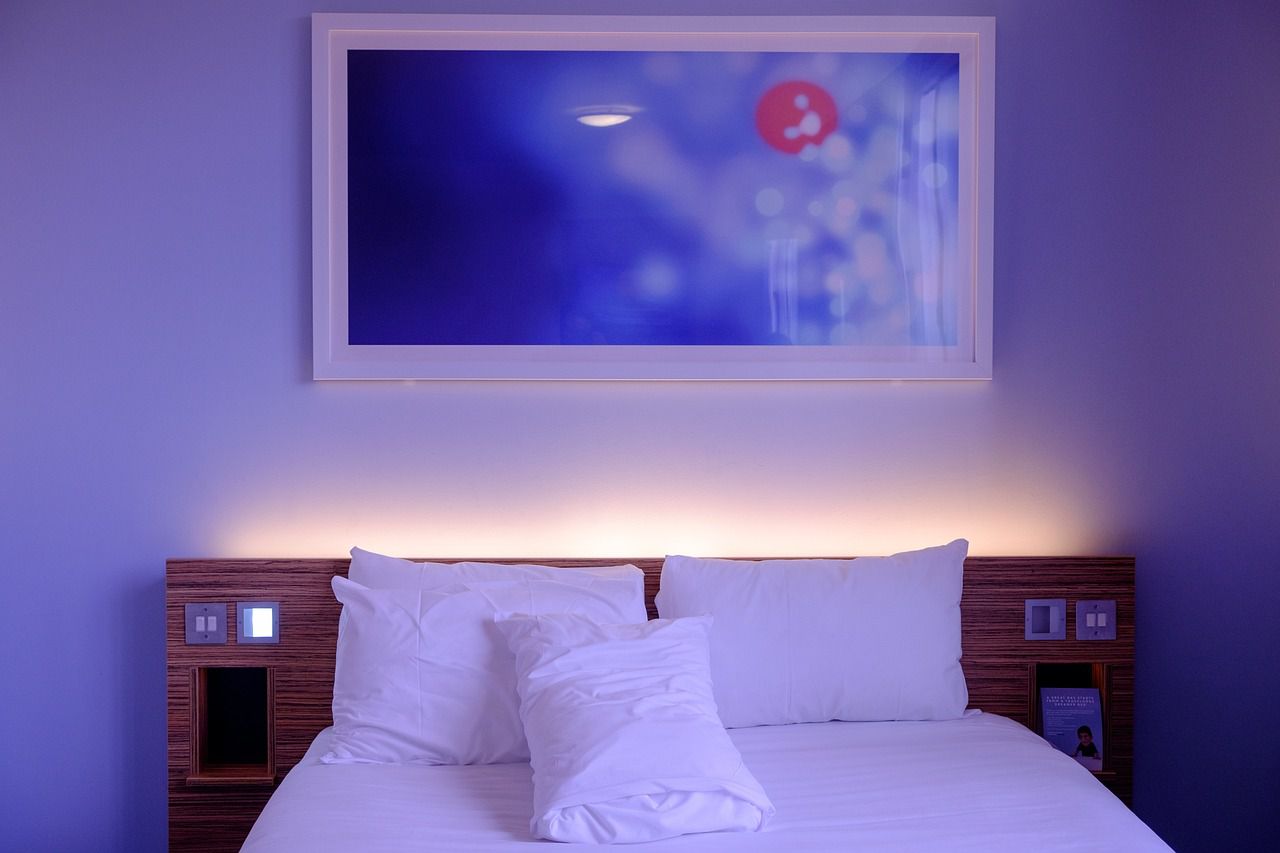These things don't let you sleep properly: Bedroom tips
Good bedroom design isn't just beautiful or trendy - it's also functional, and it doesn't interrupt your healthy sleep.
Therefore, you should learn more about possible bedroom design mistakes in advance, so you won't make them.
Let's look closely at things that can make it harder for you to rest properly.
Vivid Patterns
Using bold, busy patterns on your bedding or walls can make your mind stay active, making it harder to relax and sleep.
Opt for more soothing and subtle designs.

Improper Bed Placement
If your bed is directly in line with the bedroom door, it's considered bad Feng Shui. It can create restlessness.
Try positioning your bed so you can see the bedroom door, but you're not directly in line with it.
Unsettling Artwork
Artwork that is intense or unsettling can have a similar effect to bright colors. Choose artwork that promotes calm and serenity.
Mismatched Bedding
Having mismatched or uncomfortable bedding can make it harder to get cozy and drift off to sleep.
Make sure your bedding is comfortable and visually pleasing.
Lack of Personal Touch
Your bedroom should feel like your personal oasis.
If it lacks personal touches or feels too generic, it can affect your comfort and ability to relax.
Too Much Symmetry
While balance is good, too much symmetry in your bedroom layout can make it feel stiff and formal.
A more relaxed, asymmetrical layout can be cozier.
Inadequate Curtains
If your curtains let in too much outside light, it can disrupt your sleep.
Dark, light-blocking curtains can be a game-changer for restful sleep.
Conclusion
By paying attention to these less obvious aspects of bedroom design, you can create a sleep-conducive environment that helps you get a better night's rest.
